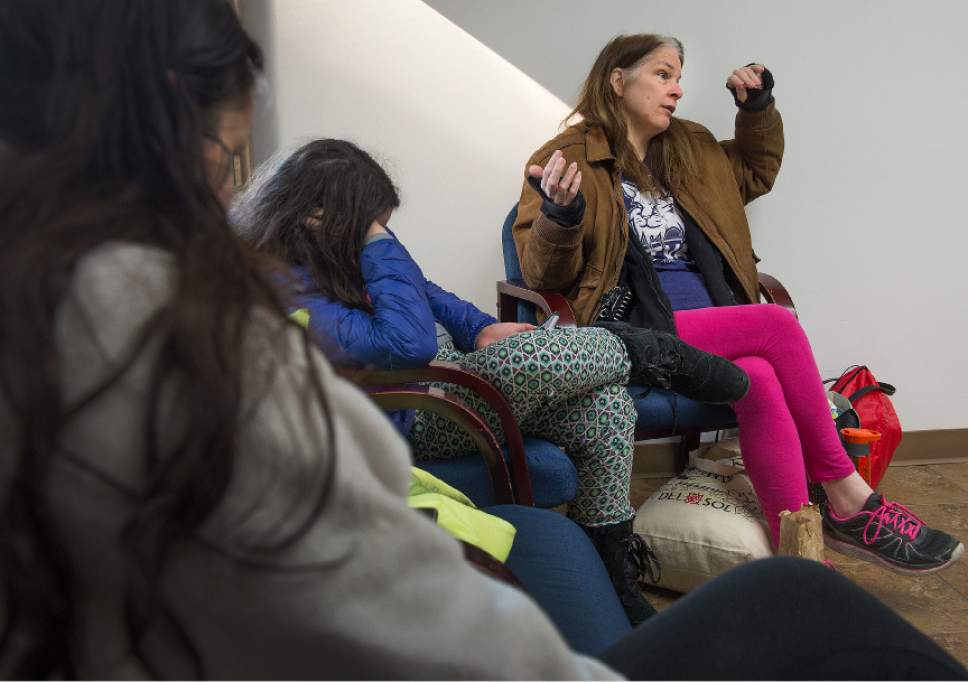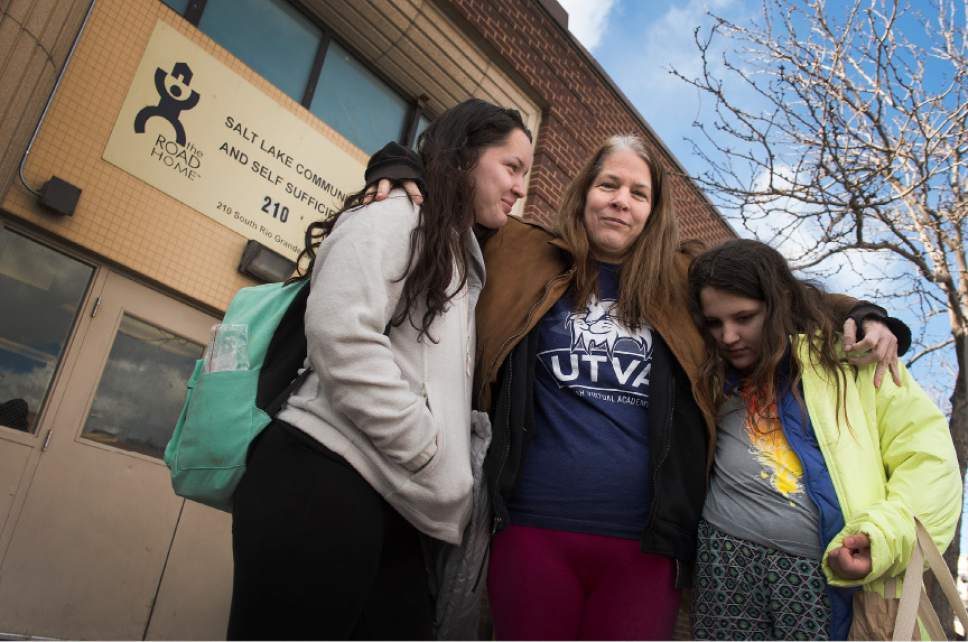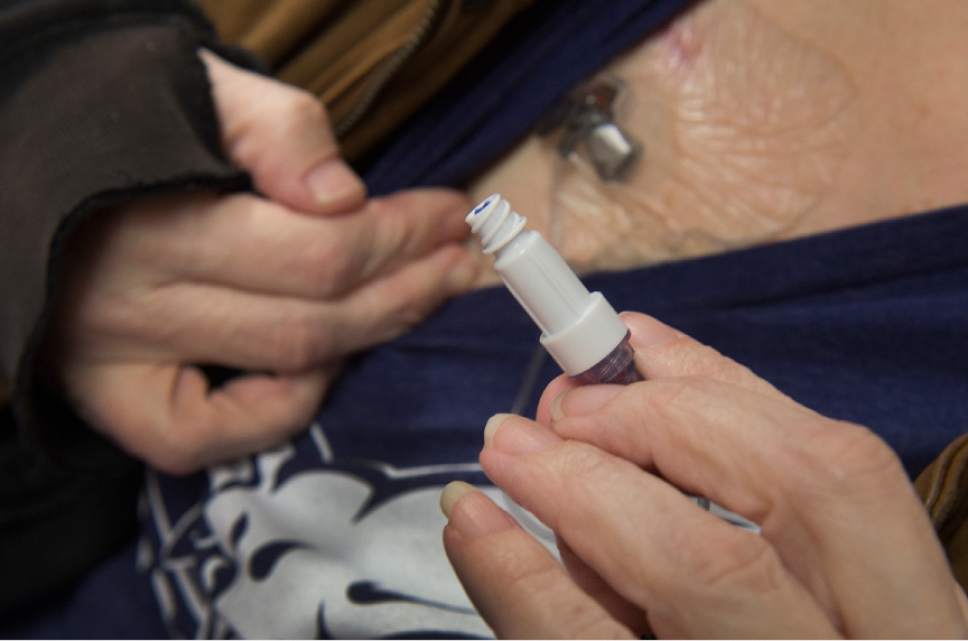This is an archived article that was published on sltrib.com in 2017, and information in the article may be outdated. It is provided only for personal research purposes and may not be reprinted.
Due to her failing health, Kimberly Gross and her daughters, Destiny Westman, 10, and Petrina Westman, 14, are back at the Road Home shelter after being evicted from an apartment provided, in part, with aid from a federal program called "Rapid Rehousing."
Their plight has been difficult physically and emotionally, Gross said.
"I don't think my girls are really dealing with it yet," she said.
Petrina added, "There really is no way to deal with it."
The shelter on Rio Grande Street and the area surrounding it are chaotic and can be dangerous. Drugs are commonly sold and used along 500 West. At times, the area appears to be lawless and frightening.
A Salt Lake Tribune story about the woman's medical ailments and their pending eviction at Christmastime brought an outpouring of concern from across the country. A fundraising account set up for Gross netted $4,915.
Some of the money was used to move the family members out of their Taylorsville apartment and for a two-week stay at a motel.
Those donations, however, can be considered income by the Utah Department of Workforce Services and put Gross' food stamp and cash assistance benefits in jeopardy.
Attorney Joshua Tandy, who took her eviction case pro bono, and homeless advocate Ashley Hoopes are working on finding a way within state and federal policies to make the remaining cash available to the family without penalties. It most likely will not be used for housing.
Gross suffers from Crohn's disease — an inflammatory bowel disorder — and a host of ailments that accompany it. She also must regularly receive intravenous infusions of potassium and magnesium.
She fears infection through the external port that was implanted by a physician to facilitate the intravenous infusions. Presently they are administered by her 14-year-old daughter in their room at the shelter.
They entered The Road Home on Feb. 21. Until Friday, they did not have a room and slept on cots wherever they could find space.
Gross said she regularly comes into contact with residents who are sick and coughing. "The best place for me," she said, "would be in a sanitary setting."
She also has trained Petrina how to react if she falls unconscious or goes into a seizure.
"It's hard on her," Gross said, "but she knows that's what we have to do to stay together."
In August, with her health deteriorating, Gross' doctor ordered her to stop working at her clerical job. Rent became an issue. She could not pay the $850 rent for October, November and December. The utilities were about $95 per month. The landlord sued for eviction and a 3rd District Court judge ordered them to vacate by Jan. 2.
Her attorney said not paying the last three months of her stay there was the only way to recoup the deposit and some compensation for renting the apartment, which did not meet Taylorsville municipal housing codes that are mandatory under Rapid Rehousing funded by the federal Department of Housing and Urban Development. The HUD initiative typically pays a deposit and three months' rent.
Gross and her daughters were able to remain in a motel for five additional weeks through a program for the medically vulnerable administered by Volunteers of America and the Fourth Street Clinic. Those funds have run out.
Their options now appear limited. Gross would like to live at Palmer Court, a permanent supportive apartment complex operated by The Road Home. Residents there work with a team of case managers to transition into private-sector housing. She would have to qualify through the Salt Lake County Housing Authority.
Gross also has signed up again to participate in Rapid Rehousing. How that would work without employment remains unclear. Gross hopes she can qualify for Social Security benefits based on disability that would help offset monthly rent.
For the time being, the three — like many at the shelter — struggle and focus on little more than getting through another day at a place that is challenging for anyone, let alone youngsters and anyone suffering from serious medical issues.
csmart@sltrib







